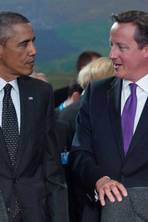Friday 2 July 2010
Johann Hari: How Goldman gambled on starvation
Speculators set up a casino where the chips were the stomachs of millions. What does it say about our system that we can so casually inflict so much pain?
By now, you probably think your opinion of Goldman Sachs and its swarm of Wall Street allies has rock-bottomed at raw loathing. You're wrong. There's more. It turns out that the most destructive of all their recent acts has barely been discussed at all. Here's the rest. This is the story of how some of the richest people in the world – Goldman, Deutsche Bank, the traders at Merrill Lynch, and more – have caused the starvation of some of the poorest people in the world.
It starts with an apparent mystery. At the end of 2006, food prices across the world started to rise, suddenly and stratospherically. Within a year, the price of wheat had shot up by 80 per cent, maize by 90 per cent, rice by 320 per cent. In a global jolt of hunger, 200 million people – mostly children – couldn't afford to get food any more, and sank into malnutrition or starvation. There were riots in more than 30 countries, and at least one government was violently overthrown. Then, in spring 2008, prices just as mysteriously fell back to their previous level. Jean Ziegler, the UN Special Rapporteur on the Right to Food, calls it "a silent mass murder", entirely due to "man-made actions."
Earlier this year I was in Ethiopia, one of the worst-hit countries, and people there remember the food crisis as if they had been struck by a tsunami. "My children stopped growing," a woman my age called Abiba Getaneh, told me. "I felt like battery acid had been poured into my stomach as I starved. I took my two daughters out of school and got into debt. If it had gone on much longer, I think my baby would have died."
Most of the explanations we were given at the time have turned out to be false. It didn't happen because supply fell: the International Grain Council says global production of wheat actually increased during that period, for example. It isn't because demand grew either: as Professor Jayati Ghosh of the Centre for Economic Studies in New Delhi has shown, demand actually fell by 3 per cent. Other factors – like the rise of biofuels, and the spike in the oil price – made a contribution, but they aren't enough on their own to explain such a violent shift.
To understand the biggest cause, you have to plough through some concepts that will make your head ache – but not half as much as they made the poor world's stomachs ache.
For over a century, farmers in wealthy countries have been able to engage in a process where they protect themselves against risk. Farmer Giles can agree in January to sell his crop to a trader in August at a fixed price. If he has a great summer, he'll lose some cash, but if there's a lousy summer or the global price collapses, he'll do well from the deal. When this process was tightly regulated and only companies with a direct interest in the field could get involved, it worked.
Then, through the 1990s, Goldman Sachs and others lobbied hard and the regulations were abolished. Suddenly, these contracts were turned into "derivatives" that could be bought and sold among traders who had nothing to do with agriculture. A market in "food speculation" was born.
So Farmer Giles still agrees to sell his crop in advance to a trader for £10,000. But now, that contract can be sold on to speculators, who treat the contract itself as an object of potential wealth. Goldman Sachs can buy it and sell it on for £20,000 to Deutsche Bank, who sell it on for £30,000 to Merrill Lynch – and on and on until it seems to bear almost no relationship to Farmer Giles's crop at all.
If this seems mystifying, it is. John Lanchester, in his superb guide to the world of finance, Whoops! Why Everybody Owes Everyone and No One Can Pay, explains: "Finance, like other forms of human behaviour, underwent a change in the 20th century, a shift equivalent to the emergence of modernism in the arts – a break with common sense, a turn towards self-referentiality and abstraction and notions that couldn't be explained in workaday English." Poetry found its break with realism when T S Eliot wrote "The Wasteland". Finance found its Wasteland moment in the 1970s, when it began to be dominated by complex financial instruments that even the people selling them didn't fully understand.
So what has this got to do with the bread on Abiba's plate? Until deregulation, the price for food was set by the forces of supply and demand for food itself. (This was already deeply imperfect: it left a billion people hungry.) But after deregulation, it was no longer just a market in food. It became, at the same time, a market in food contracts based on theoretical future crops – and the speculators drove the price through the roof.
Here's how it happened. In 2006, financial speculators like Goldmans pulled out of the collapsing US real estate market. They reckoned food prices would stay steady or rise while the rest of the economy tanked, so they switched their funds there. Suddenly, the world's frightened investors stampeded on to this ground.
So while the supply and demand of food stayed pretty much the same, the supply and demand for derivatives based on food massively rose – which meant the all-rolled-into-one price shot up, and the starvation began. The bubble only burst in March 2008 when the situation got so bad in the US that the speculators had to slash their spending to cover their losses back home.
When I asked Merrill Lynch's spokesman to comment on the charge of causing mass hunger, he said: "Huh. I didn't know about that." He later emailed to say: "I am going to decline comment." Deutsche Bank also refused to comment. Goldman Sachs were more detailed, saying they sold their index in early 2007 and pointing out that "serious analyses ... have concluded index funds did not cause a bubble in commodity futures prices", offering as evidence a statement by the OECD.
How do we know this is wrong? As Professor Ghosh points out, some vital crops are not traded on the futures markets, including millet, cassava, and potatoes. Their price rose a little during this period – but only a fraction as much as the ones affected by speculation. Her research shows that speculation was "the main cause" of the rise.
So it has come to this. The world's wealthiest speculators set up a casino where the chips were the stomachs of hundreds of millions of innocent people. They gambled on increasing starvation, and won. Their Wasteland moment created a real wasteland. What does it say about our political and economic system that we can so casually inflict so much pain?
If we don't re-regulate, it is only a matter of time before this all happens again. How many people would it kill next time? The moves to restore the pre-1990s rules on commodities trading have been stunningly sluggish. In the US, the House has passed some regulation, but there are fears that the Senate – drenched in speculator-donations – may dilute it into meaninglessness. The EU is lagging far behind even this, while in Britain, where most of this "trade" takes place, advocacy groups are worried that David Cameron's government will block reform entirely to please his own friends and donors in the City.
Only one force can stop another speculation-starvation-bubble. The decent people in developed countries need to shout louder than the lobbyists from Goldman Sachs. The World Development Movement is launching a week of pressure this summer as crucial decisions on this are taken: text WDM to 82055 to find out what you can do.
The last time I spoke to her, Abiba said: "We can't go through that another time. Please – make sure they never, never do that to us again."


i100: A single mother on benefits who became one of the world's most successful authors
11 rags-to-riches underdog success stories

Visit Kent with Simon Calder
Simon Calder explores the delights of England’s Garden in the south-easternmost corner of Britain, now only a swift rail ride away. Watch the video here.

Visit Essex with Simon Calder
Simon Calder gets acquainted with the grassy hills, crinkled coastline and picture-perfect market towns of this dreamy rural haven. Watch the video here.

Forget top summer reads
here are our top five summer listens

Update your holiday wardrobe
Update your holiday wardrobe with tropical prints, the perfect pair of sandals and some seriously stylish swimwear to make a splash in. Bon voyage.

Get Reddy
For a hint of autumnal elegance opt for boozy hues of tomato, rouge and claret. Get reddy says Melanie Wilkinson

Get the look. See the trends.
Westfield and Snapfashion team up to create a new digital styling tool. Create a style board or browse this season's trends. #editme.

Jake Bugg: "I’m the one I have to answer to…"
Fresh out of his teenage years, singer-songwriter Jake Bugg has achieved the kind of success that most aspiring musicians can merely dream of.

Enter the latest Independent competitions
Win anything from gadgets to five-star holidays on our competitions and offers page.

Business videos from commercial thought leaders
Watch the best in the business world give their insights into the world of business.
Related Articles
iJobs General
Cover Supervisor
£60 - £90 per day: Randstad Education Leeds: The JobSeveral cover supervisors ...
Maths Teacher
£100 - £150 per day: Randstad Education Sheffield: My Client is looking for a ...
SQL DBA (SSIS, ETL) - London, £60k
£60000 per annum: Ashdown Group: SQL DBA (SSIS, ETL) - London, £60,000 London ...
Qualified Secondary Teachers
£121 - £130 per day: Randstad Education Luton: SECONDARY TEACHERS in Hitchin a...
Day In a Page

'She was a singer, a superstar, an addict, but to me, her mother, she is simply Amy'

England and Hodgson take a joint step towards redemption

The fall of Rome?

Glasgow girl made good

We need to stop being cowardly about death

They talk the talk, but do our leaders have the stomach to face up to the Russians?























